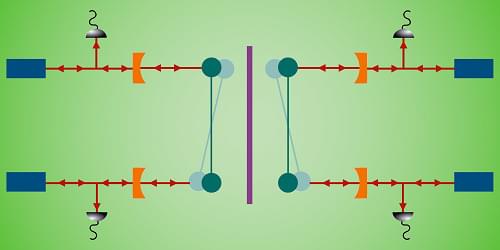By coupling two fluxonium qubits through an inductive circuit rather than through a capacitor, researchers have realized a high-fidelity two-qubit gate.
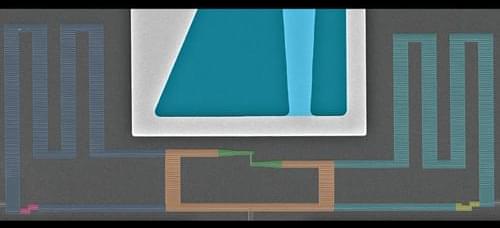


TURKU, Finland — Beam me up, Scotty! In a study that seems straight out of a “Star Trek” episode, an international team of researchers has achieved a remarkable feat in the realm of quantum teleportation. They have successfully conducted near-perfect quantum teleportation despite the presence of noise that typically disrupts the transfer of quantum states.
Quantum teleportation is a process in which the state of a quantum particle, or qubit, is transferred from one location to another without physically sending the particle itself. This transfer requires quantum resources, such as entanglement between an additional pair of qubits.
Imagine you have a secret message written on a piece of paper. You want to send this message to someone far away without anyone else seeing it. In quantum teleportation, instead of physically sending the paper, you would make an exact copy of the message at the other location while the original message gets destroyed. This requires some special resources like entanglement, which is like a mysterious connection between two qubits.
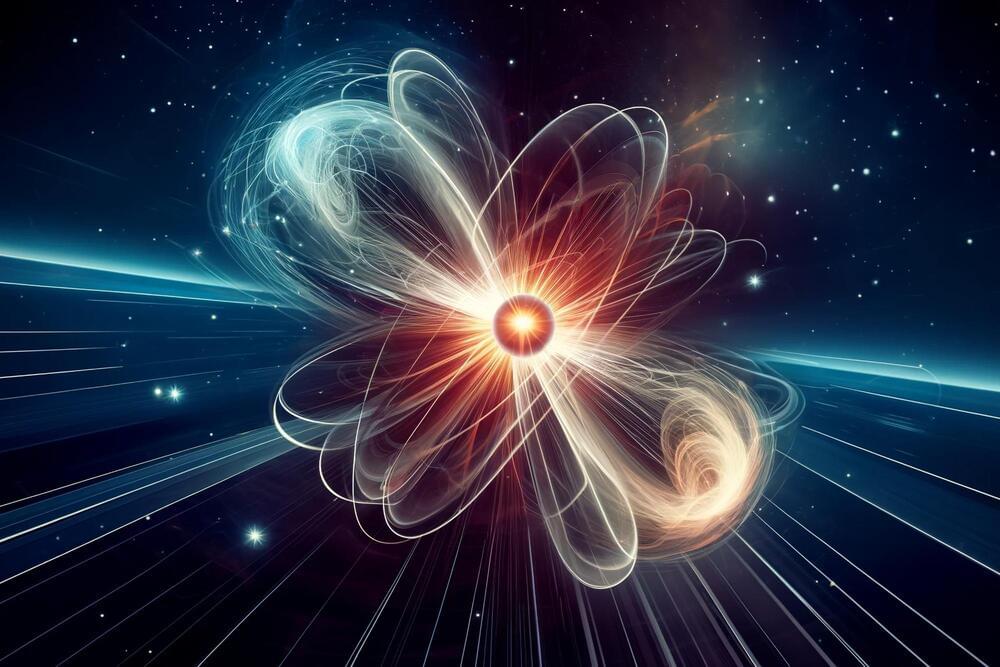
Researchers at Tohoku University and the Japan Atomic Energy Agency have developed fundamental experiments and theories to manipulate the geometry of the ‘electron universe,’ which describes the structure of electronic quantum states in a manner mathematically similar to the actual universe, within a magnetic material under ambient conditions.
The investigated geometric property – i.e., the quantum metric – was detected as an electric signal distinct from ordinary electrical conduction. This breakthrough reveals the fundamental quantum science of electrons and paves the way for designing innovative spintronic devices utilizing the unconventional conduction emerging from the quantum metric.
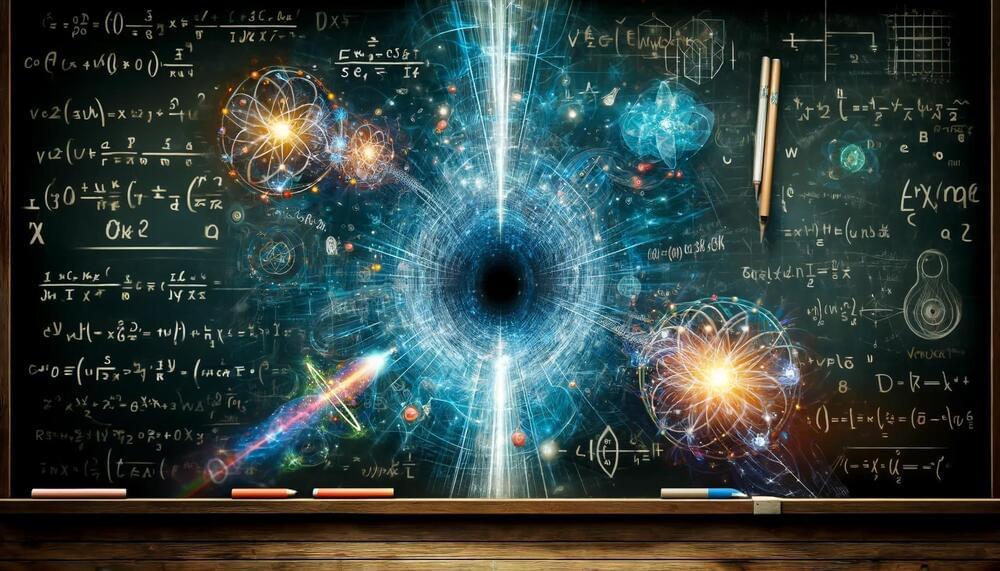
Researchers have successfully used 40-year-old mathematics to explain quantum tunneling, providing a unified approach to diverse quantum phenomena.
Quantum mechanical effects such as radioactive decay, or more generally: ‘tunneling’, display intriguing mathematical patterns. Two researchers at the University of Amsterdam now show that a 40-year-old mathematical discovery can be used to fully encode and understand this structure.
Quantum Physics – Easy and Hard.
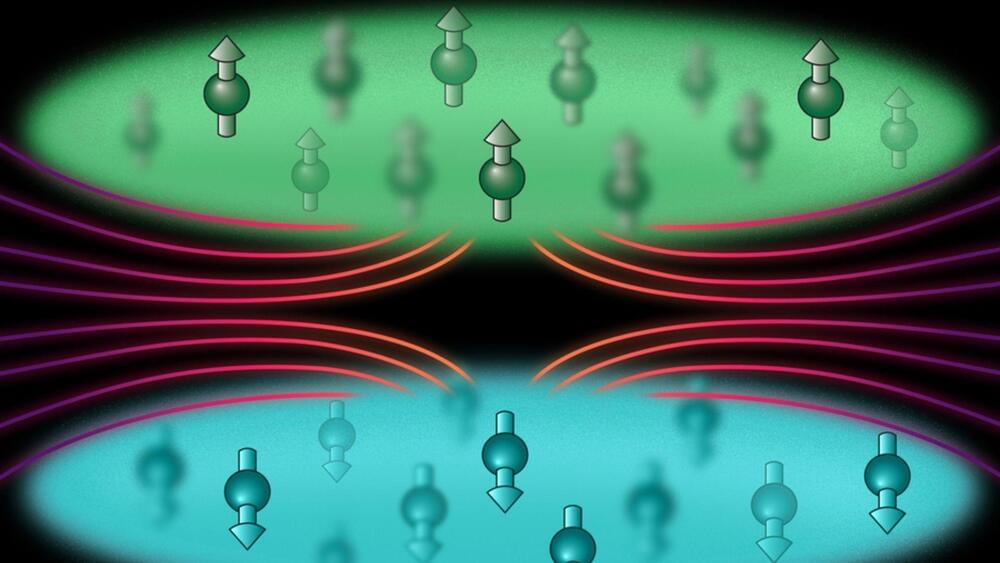
The experiment confirmed their suspicions. By supercooling the dysprosium atoms, splitting them into spin-based layers with the lasers, and stabilizing the lasers with the optical fiber, they successfully achieved a 50-nanometer separation – the closest arrangement ever achieved in ultracold atom experiments.
This dramatic proximity significantly amplified the natural magnetic interactions between the atoms, making them a thousand times stronger than at 500 nanometers. The team observed two fascinating quantum phenomena: collective oscillation, where vibrations in one layer triggered synchronized vibrations in the other, and thermalization, where heat transfer occurred between the layers solely through fluctuating magnetic fields within the atoms.
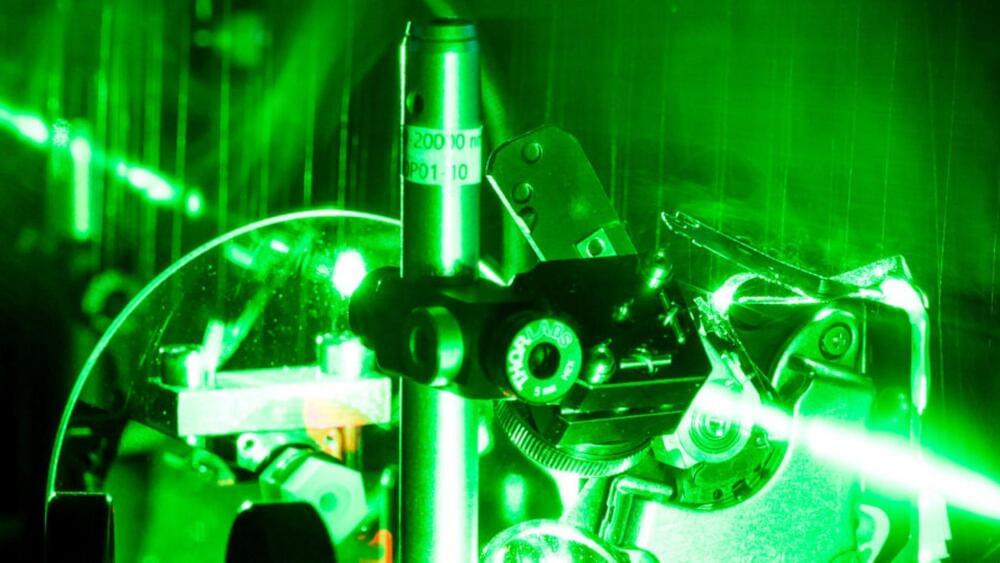
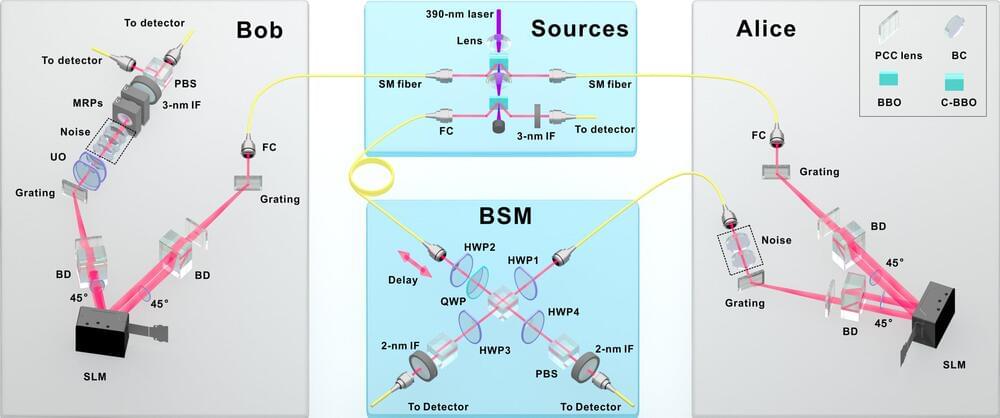
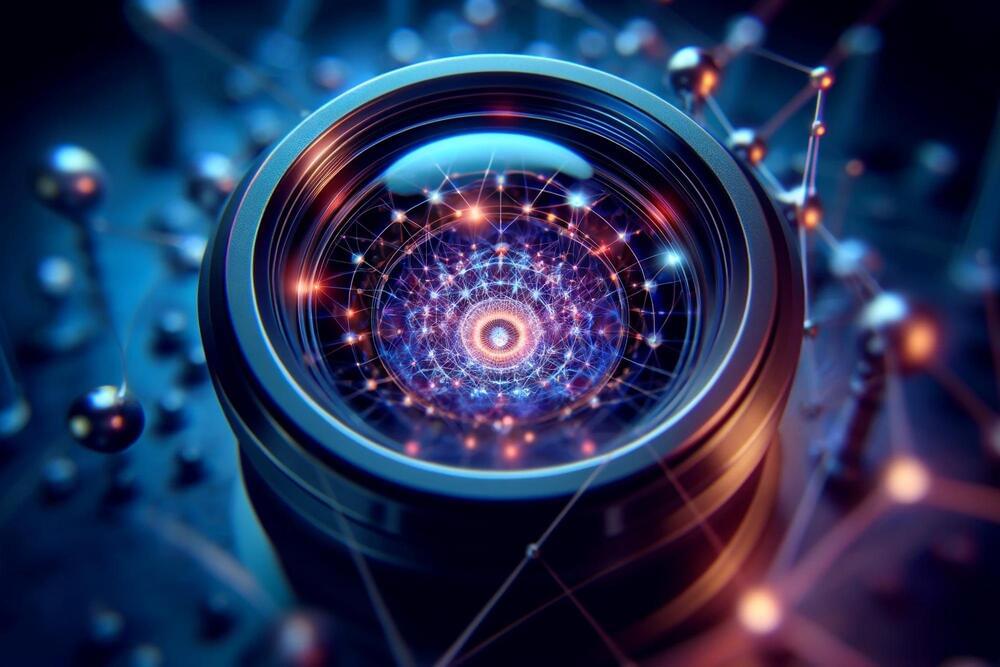
QUIONE, a unique quantum-gas microscope developed by ICFO researchers in Spain, utilizes strontium to simulate complex quantum systems and explore materials at the atomic level. It aims to solve problems beyond current computational capabilities and has already demonstrated phenomena like superfluidity.
Quantum physics needs high-precision sensing techniques to delve deeper into the microscopic properties of materials. From the analog quantum processors that have emerged recently, the so-called quantum-gas microscopes have proven to be powerful tools for understanding quantum systems at the atomic level. These devices produce images of quantum gases with very high resolution: they allow individual atoms to be detected.
Development of QUIONE.
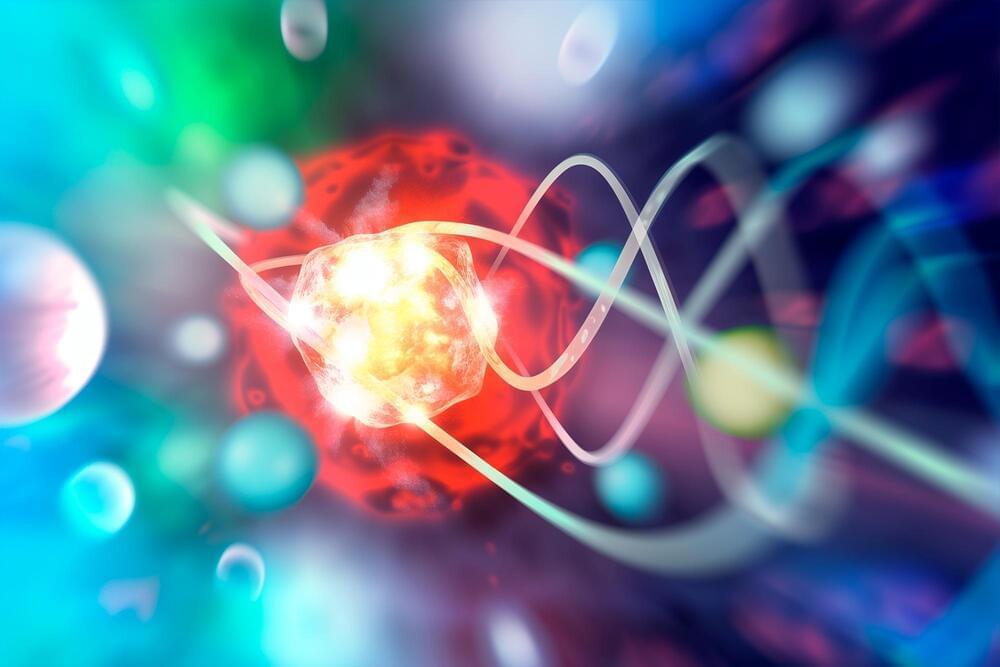
Scientists have introduced a groundbreaking form of quantum entanglement known as frequency-domain photon number-path entanglement. This leap in quantum physics involves an innovative tool called a frequency beam splitter, which has the unique ability to alter the frequency of individual photons with a 50% success rate.
For years, the scientific community has delved into spatial-domain photon number-path entanglement, a key player in the realms of quantum metrology and information science. This concept involves photons arranged in a special pattern, known as NOON states, where they’re either all in one pathway or another, enabling groundbreaking applications like super-resolution imaging that surpasses traditional limits, the enhancement of quantum sensors, and the development of quantum computing algorithms designed for tasks requiring exceptional phase sensitivity.
In a new paper published in Light Science & Application, a team of scientists, led by Professor Heedeuk Shin from Department of Physics, Pohang University of Science and Technology, Korea, have developed an entangled states in the frequency domain, a concept akin to spatial-domain NOON states but with a significant twist: instead of photons being divided between two paths, they’re distributed between two frequencies. This advancement has led to the successful creation of a two-photon NOON state within a single-mode fiber, showcasing an ability to perform two-photon interference with double the resolution of its single-photon counterpart, indicating remarkable stability and potential for future applications.
